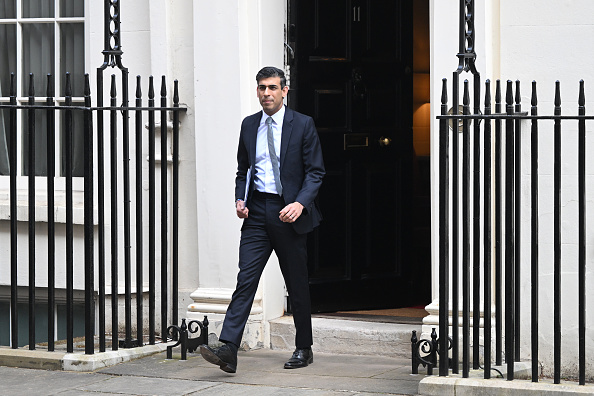Rishi stole the crypto thunder with an NFT as Whitehall fights to go digital

Last week, away from the grinding tragedy of the war in Ukraine and the ongoing fears over rising costs of living, Rishi Sunak unveiled an eye-catching plan. The Royal Mint is set to launch its own non-fungible token (NFT), marking the beginning of the government’s plans to wade into the cryptocurrency sector.
NFTs have been the subject of much controversy recently. As tokens of ownership attached to a blockchain, they are trumpeted by their supporters as a unique asset class, a move towards using crypto assets as a form of payment. Their detractors point to the infamous Bored Ape Yacht Club, from which investors can buy a “unique and programmatically generated” picture of a monkey which grants access to the club. In other words, they say these tokens are fundamentally without value.
Aside from the rough and tumble of debates over NFTs and cryptocurrency, what is notable is that the government’s decision to involve itself in the cryptocurrency space came not from the Department for Digital, Culture, Media and Sport (DCMS) – but the Chancellor. DCMS, under the stewardship of Culture Secretary Nadine Dorries, is a Whitehall minnow at around 900 employees and has been responsible for the digital economy since 2017, gaining momentum with the appointment of enthusiast Matt Hancock in January 2018.
The “D” in DCMS does not have a glittering track record. The legislation introducing digital IDs has been much delayed; the government’s Digital Strategy is behind schedule and still has significant gaps in it; the advisory Digital Economy Council, chaired by the secretary of state, meets infrequently, and the Online Safety Bill has emerged in what could charitably been called a muddle.
So the Treasury took charge last week. Of course the UK’s finance ministry outguns DCMS in terms of personnel and influence, and Sunak, though his star may be waning at the moment, is still one of the savviest media operators in the cabinet. But there is also a sense of frustration with DCMS, and of other departments pressing ahead regardless.
There are a number of problems at work here. The first is that DCMS—which still carries a whiff of the David Mellor-era “Ministry of Fun”—is regarded as low-ranking in the Whitehall pecking order. It is often politicians’ first cabinet-level job (Bradley, Hancock, Wright, Dorries), and not all of its secretaries of state are generally regarded as destined for greater things.
Although the department is responsible for digital policy, many other organisations have a stake in the territory: Business, Energy and Industrial Strategy, International Trade, the Cabinet Office and the Treasury all have important roles to play, and leadership is therefore rather diffuse. Where direction is unclear, policy can and does drift.
Most of all, however, digital (to use the adjective as a noun in the modern way) is a vitally important area and is only becoming more so. Technology, digital infrastructure, cyber security and regulation are central to the UK’s recovery and development after the Covid-19 pandemic, and they are simply not being driven as effectively and dynamically as the government needs. DCMS ministers and civil servants are often distracted by the more glamorous calls of culture and media, and their bandwidth is accordingly diminished when it comes to digital policy.
Many argue that the field should be transferred to BEIS, where it might more easily sit; others have pressed for a dedicated digital ministry. Whatever happens, the most pressing need is for responsible ministers who understand the territory and understand more than anything the need for speed and agility. Digital is evolving more rapidly than perhaps any other area in government, and policy, including regulation, must move at the same speed.
The UK simply cannot afford to have lightweight ministers fighting the last war. However it is done in machinery-of-government terms, we must have a deft and reactive hand on the tiller of digital policy, driving advances and investment, working closely with the private sector and adapting to changes. The government really must be “digital first”.